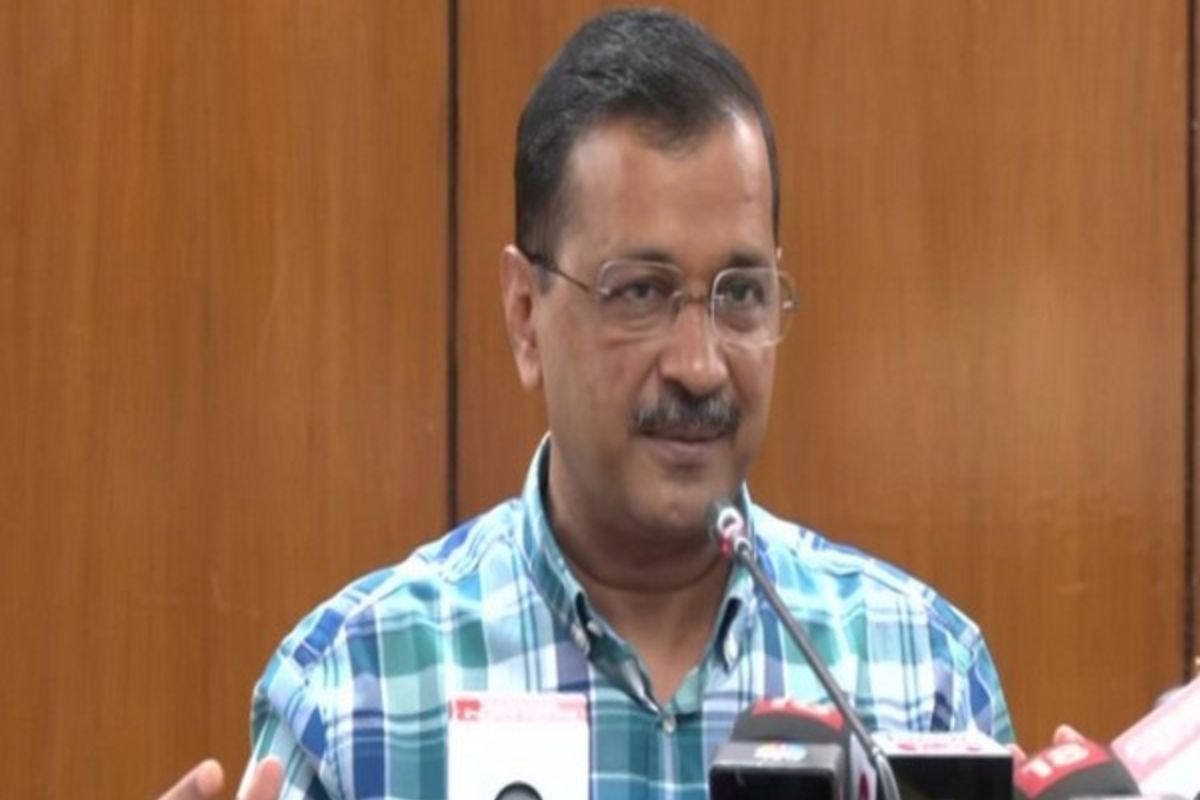Atishi, AAP workers protest outside Tihar Jail
Arvind Kejriwal is currently in Tihar Jail under judicial custody. He was arrested by the Enforcement Directorate on March 21 in connection with the Delhi liquor policy case.
“Will be meeting Tamil Nadu CM Thiru @mkstalin in Chennai tomorrow (1st June) to seek DMK’s support against Centre’s unconstitutional-undemocratic ‘Anti-Delhi’ Ordinance,” the Delhi CM said in a tweet.

Chief Minister Arvind Kejriwal (Photo: ANI)
Chief Minister Arvind Kejriwal on Wednesday said he would meet his Tamil Nadu and Jharkhand counterparts – MK Stalin and Hemant Soren – on June 1 and June 2 respectively, to seek their support against the Centre’s ordinance giving control of ‘services’ back to the Delhi Lieutenant Governor.
“Will be meeting Tamil Nadu CM Thiru @mkstalin in Chennai tomorrow (1st June) to seek DMK’s support against Centre’s unconstitutional-undemocratic ‘Anti-Delhi’ Ordinance,” Kejriwal said in a tweet.
“On June 2, I will meet the chief minister of Jharkhand Mr @HemantSorenJMM ji in Ranchi. Will seek their support against the ordinance passed by the Modi government against the people of Delhi,” the Delhi Chief Minister said in another tweet.
Advertisement
The Aam Aadmi Party (AAP) national convenor had on May 23 embarked on a nationwide tour to seek support from the Opposition parties against the ordinance.
Kejriwal has so far met West Bengal Chief Minister Mamata Banerjee, former Maharashtra CM Uddhav Thackeray, Nationalist Congress Party (NCP) supremo Sharad Pawar, Bihar CM Nitish Kumar and his deputy Tejashwi Yadav.
The Central government has brought an ordinance to set up a permanent authority known as the National Capital Civil Service Authority whose chairperson will be the Delhi chief minister along with chief secretary, Delhi; Principal Secretary (Home), Delhi to make recommendations to the Delhi L-G regarding matters concerning transfer posting, vigilance and other incidental matters. However, in case of difference of opinion, the decision of the L-G shall be final.
On May 11, a five-judge constitution bench of the Supreme Court ruled that it is ideal to hold that a democratically elected Delhi government should have control over its officers and the L-G is bound by the advice of the elected government in everything other than public order, police, and land.
The top court stressed that if the government is not able to control and hold to account the officers posted in its service, then its responsibility towards the legislature as well as the public is diluted.
The ordinance came after the apex court gave the Delhi government control in services matters, including transfer and posting of officers.
Advertisement